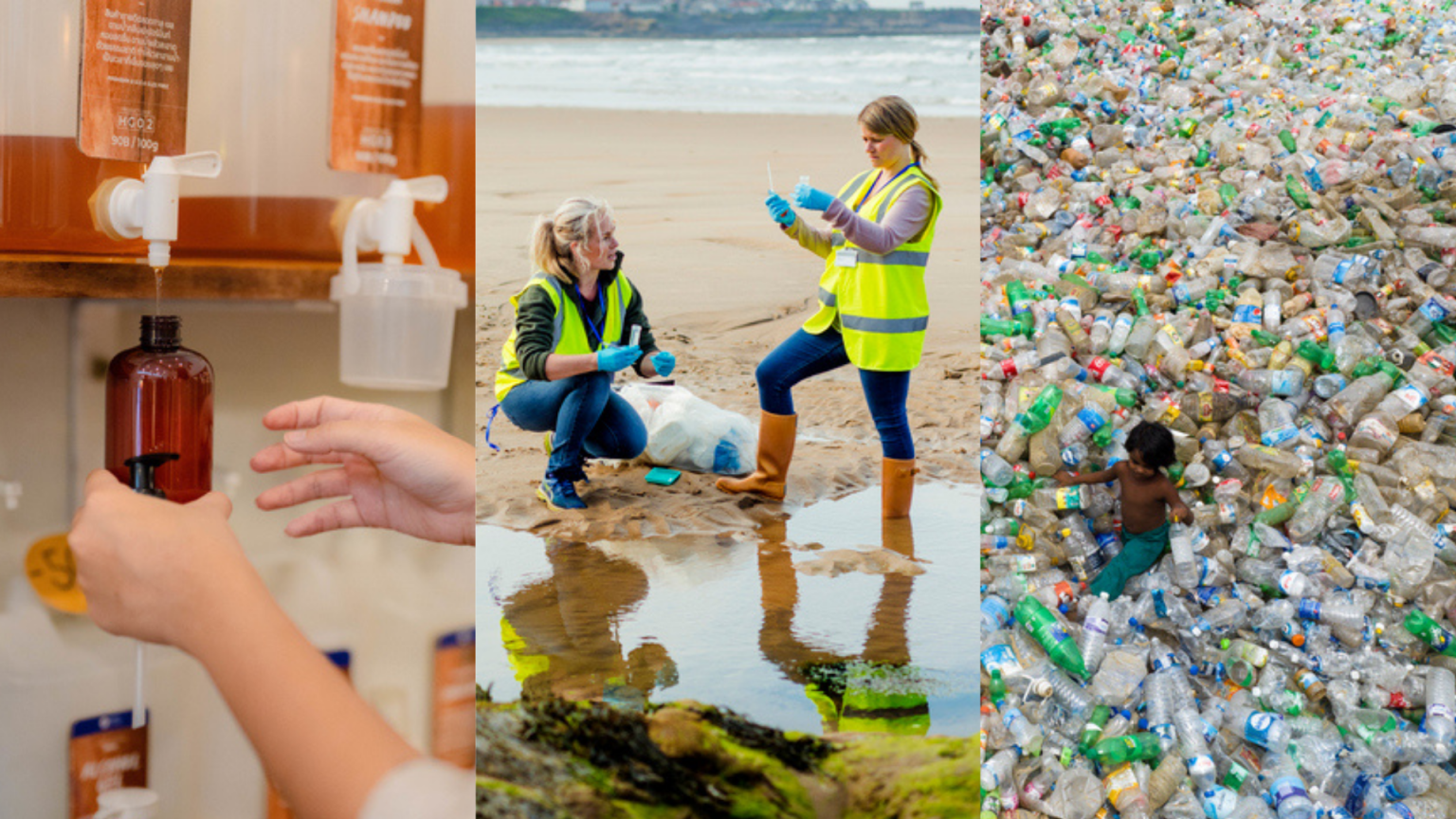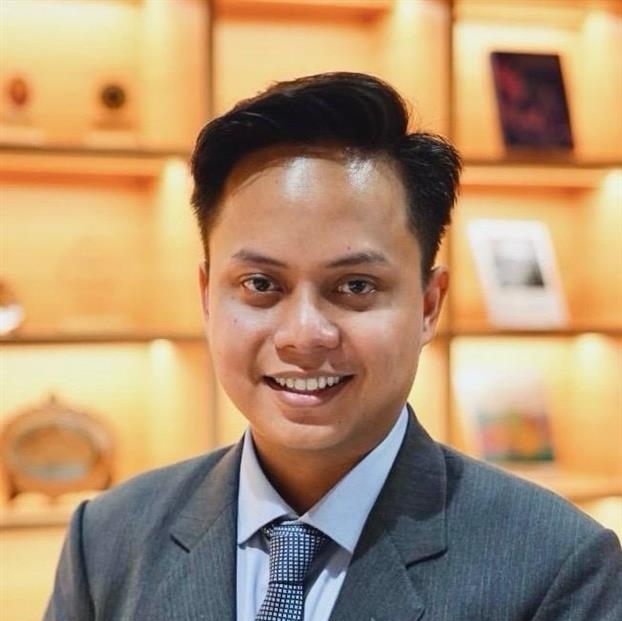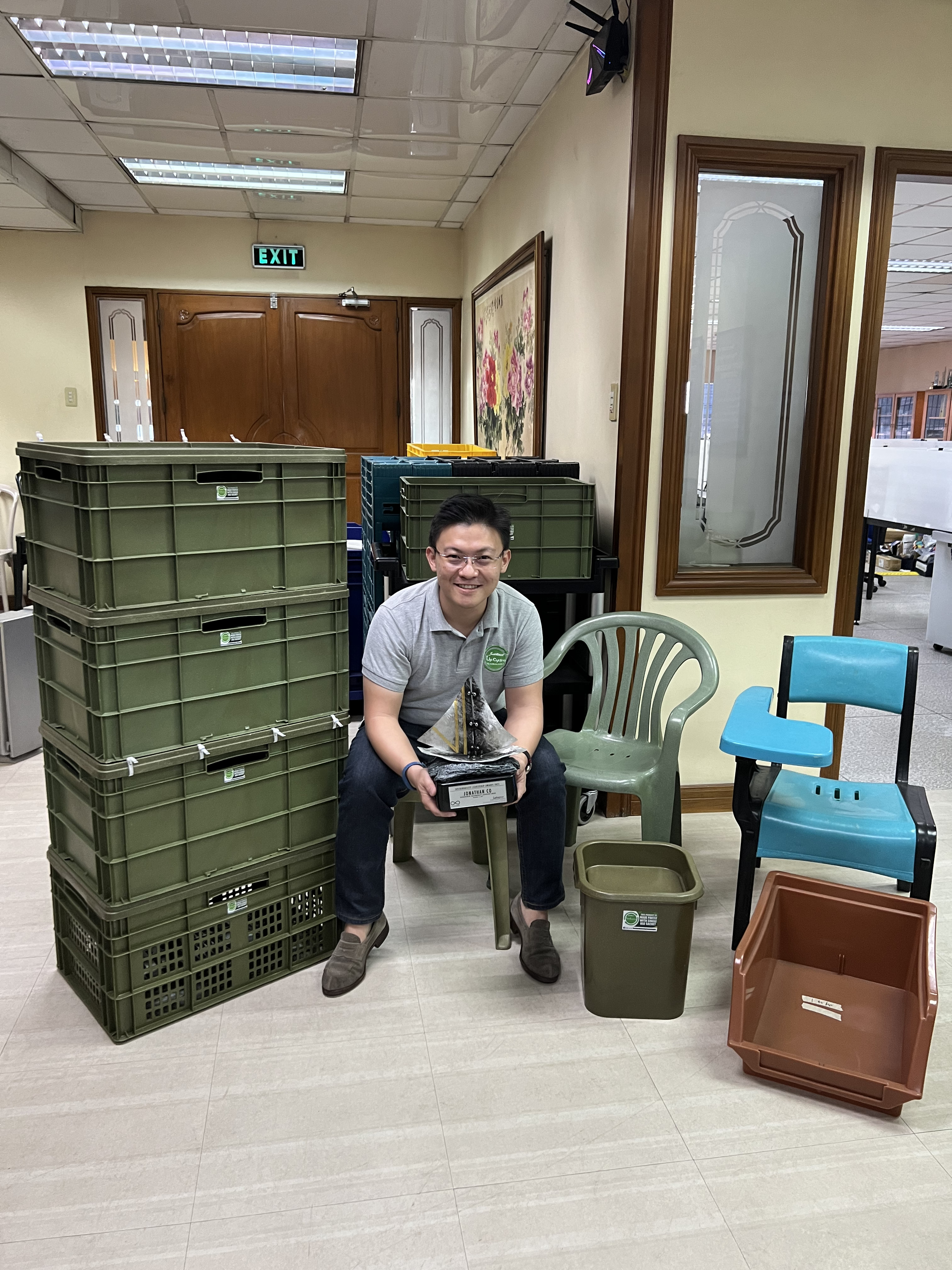

ERIA’s Regional Knowledge Centre for Marine Plastic Debris is pleased to announce the development of new capacity-building programmes, set to be implemented from 2025 to 2026. These initiatives, designed to equip key target groups with practical skills and tools to tackle plastic pollution, align with the ASEAN Regional Action Plan for Combating Marine Plastic Debris and respond to calls from stakeholders across various forums to strengthen capacity across ASEAN.
The first phase will focus on three hands-on activities designed to drive measurable impact:
CIRCONOMICS supports business – particularly SMEs/MSMEs – in adopting circular economy practices in the Philippines. The objectives are to (1) raise awareness of the circular economy, (2) provide practical and scalable tools for circular economy implementation, and (3) facilitate connections between businesses and financial enablers.
CIRCONOMICS allows participants to gain a deeper understanding of the benefits, urgency, and enabling conditions for the transition to a circular economy, while also strengthening the link between business innovation and policy development. The programme is expected to increase the number of businesses adopting or scaling circular practices.
Scheduled to be held in Indonesia, DECIDE will bring together participants from Indonesia, the Philippines, and several Mekong River countries. This activity, which targets national and city-level government officials, seeks to (1) strengthen their capacity to translate plastic monitoring data into evidence-based policymaking, and (2) inspire professionals or early-career researchers across ASEAN to engage in plastic pollution monitoring-related research.
By strengthening knowledge, engaging stakeholders, and bridging the gap between data and policymaking, DECIDE is expected to advance monitoring and science-based policy formulation.
Set to take place in Viet Nam, INCLUSEA empowers informal waste workers – particularly women and other vulnerable groups – by supporting their integration in formal decision-making processes and ensuring their voices help shape more inclusive plastic waste policies.
The programme primarily aims to: (1) enhance understanding of plastic waste management and the critical role of the informal sector, (2) raise awareness of the environmental and health impacts of plastic waste, and (3) explore opportunities and risks related to integrating informal workers into formal systems, including under emerging frameworks such as Extended Producer Responsibility (EPR).
Feedback and evaluation of these first three initiatives will inform policymakers and guide the design of capacity-building activities for 2026–2027. In the spirit of facilitating regional and national capacity building, the Knowledge Centre is committed to delivering impactful training while actively incorporating lessons learned to better meet stakeholder needs in the next phase. This iterative approach reflects the Centre’s dedication to continuous improvement and meaningful progress in addressing plastic pollution across ASEAN.
ERIA’s Regional Knowledge Centre for Marine Plastic Debris is pleased to announce the development of new capacity-building programmes, set to be implemented from 2025 to 2026. These initiatives, designed to equip key target groups with practical skills and tools to tackle plastic pollution, align with the ASEAN Regional Action Plan for Combating Marine Plastic Debris and respond to calls from stakeholders across various forums to strengthen capacity across ASEAN.
The first phase will focus on three hands-on activities designed to drive measurable impact:
CIRCONOMICS supports business – particularly SMEs/MSMEs – in adopting circular economy practices in the Philippines. The objectives are to (1) raise awareness of the circular economy, (2) provide practical and scalable tools for circular economy implementation, and (3) facilitate connections between businesses and financial enablers.
CIRCONOMICS allows participants to gain a deeper understanding of the benefits, urgency, and enabling conditions for the transition to a circular economy, while also strengthening the link between business innovation and policy development. The programme is expected to increase the number of businesses adopting or scaling circular practices.
Scheduled to be held in Indonesia, DECIDE will bring together participants from Indonesia, the Philippines, and several Mekong River countries. This activity, which targets national and city-level government officials, seeks to (1) strengthen their capacity to translate plastic monitoring data into evidence-based policymaking, and (2) inspire professionals or early-career researchers across ASEAN to engage in plastic pollution monitoring-related research.
By strengthening knowledge, engaging stakeholders, and bridging the gap between data and policymaking, DECIDE is expected to advance monitoring and science-based policy formulation.
Set to take place in Viet Nam, INCLUSEA empowers informal waste workers – particularly women and other vulnerable groups – by supporting their integration in formal decision-making processes and ensuring their voices help shape more inclusive plastic waste policies.
The programme primarily aims to: (1) enhance understanding of plastic waste management and the critical role of the informal sector, (2) raise awareness of the environmental and health impacts of plastic waste, and (3) explore opportunities and risks related to integrating informal workers into formal systems, including under emerging frameworks such as Extended Producer Responsibility (EPR).
Feedback and evaluation of these first three initiatives will inform policymakers and guide the design of capacity-building activities for 2026–2027. In the spirit of facilitating regional and national capacity building, the Knowledge Centre is committed to delivering impactful training while actively incorporating lessons learned to better meet stakeholder needs in the next phase. This iterative approach reflects the Centre’s dedication to continuous improvement and meaningful progress in addressing plastic pollution across ASEAN.

Capacity Building Expert


